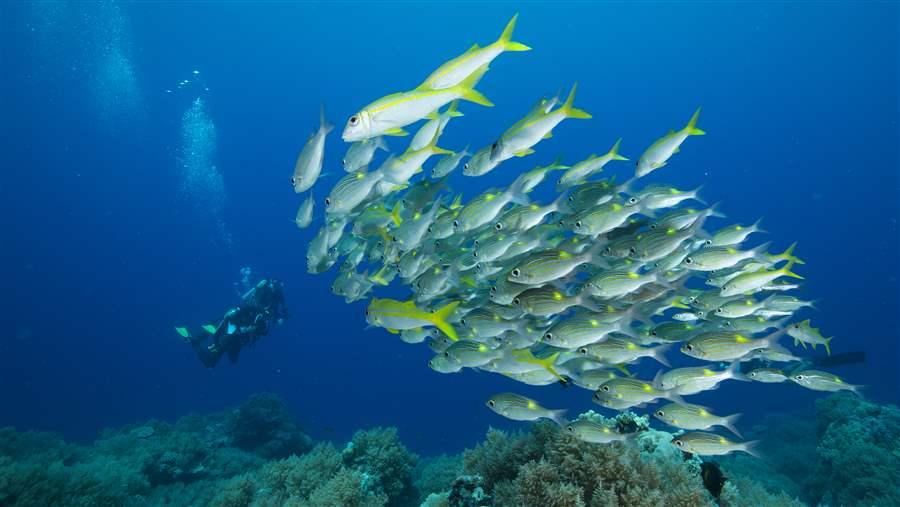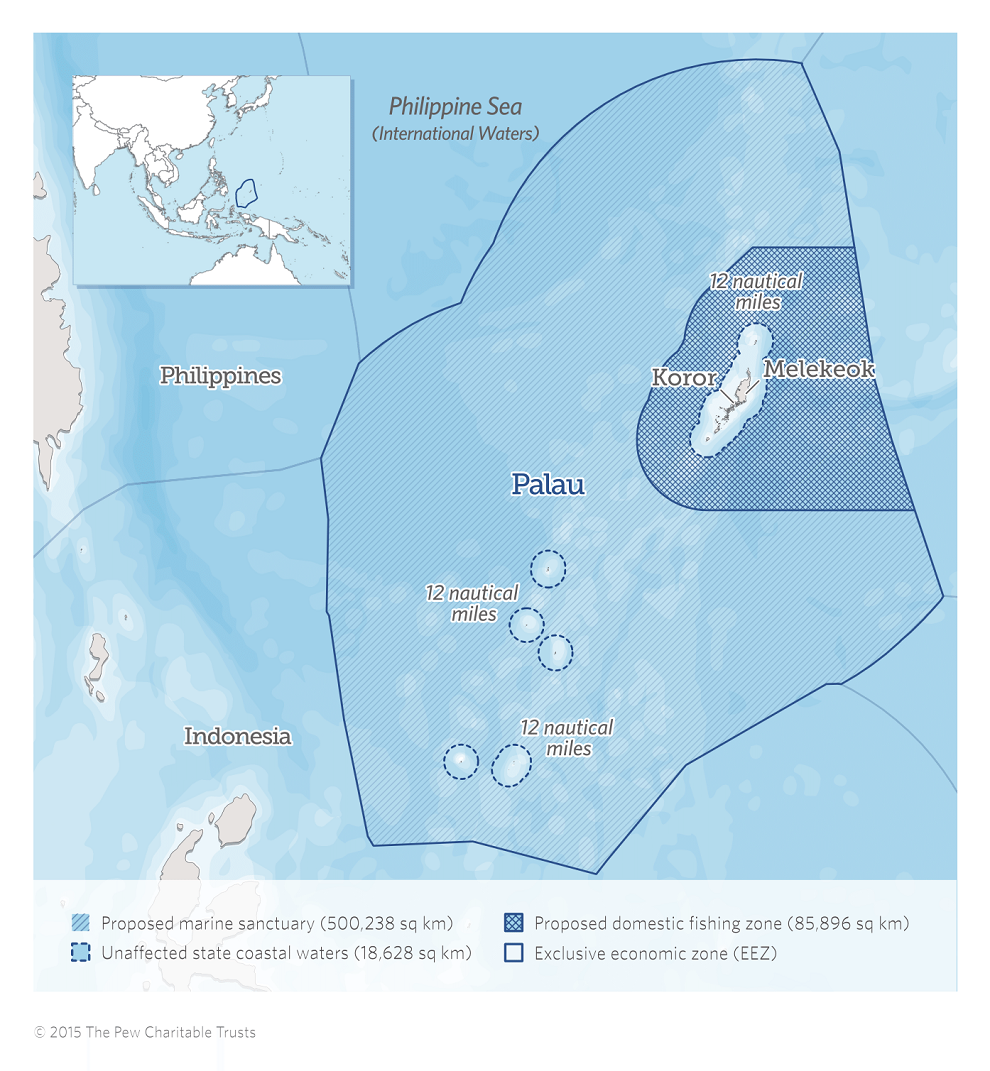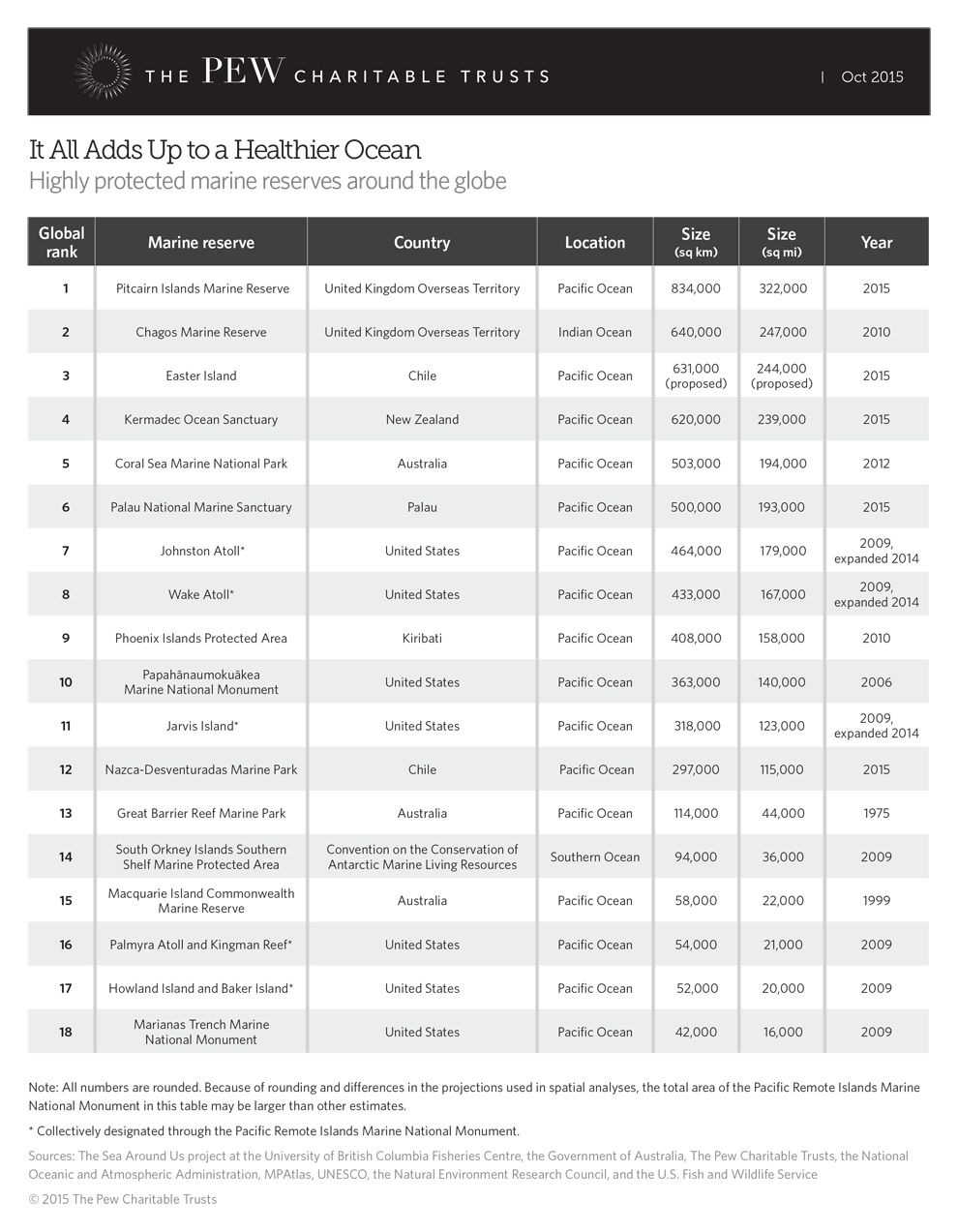Palau to Sign National Marine Sanctuary Into Law
Pacific island nation now leads the world in highest percentage of its exclusive economic zone set aside for full protection
 The Pew Charitable Trusts
The Pew Charitable TrustsCoral and marine life around Palau.
Koror, Palau —The Palau Congress today approved the Palau National Marine Sanctuary Act, which will establish one of the world’s largest protected areas of ocean in the Pacific island nation’s waters. President Tommy E. Remengesau Jr. said he would sign the measure into law as early as Monday as Friday is a national holiday in Palau.
“Today is a historic day for Palau, proving that a small island nation can have a big impact on the ocean,” President Remengesau said.
“Island communities have been among the hardest hit by the threats facing the ocean,” he continued. “Creating this sanctuary is a bold move that the people of Palau recognize as essential to our survival. We want to lead the way in restoring the health of the ocean for future generations.”
“The Palau National Marine Sanctuary will help build a secure future for the Palauan people by honoring the conservation traditions of our past,” said Senator Hokkons Baules, lead sponsor of the Palau National Marine Sanctuary Act.
Often cited as an “underwater wonder of the world,” the ocean that surrounds Palau boasts remarkably healthy marine ecosystems that are home to more than 1,300 species of fish and 700 species of coral.
The legislation creating the sanctuary designates 80 percent of the nation’s maritime territory as a fully protected marine reserve in which no extractive activities, such as fishing or mining, can take place. At 500,000 square kilometers (193,000 square miles), or slightly larger than the U.S. state of California, the sanctuary becomes the sixth-largest fully protected marine area in the world.
About 20 percent of Palau’s waters will become a domestic fishing zone reserved for local fishermen and small-scale commercial fisheries with limited exports. This transformation of Palau’s exclusive economic zone (EEZ) will take place over a five-year period, during which the number of licenses sold to foreign commercial vessels will be decreased annually. The nation’s coastal waters, an area of 12 nautical miles around each of the 250 islands, will continue to be managed by Palau’s 16 states.
"In its 20-year history as an independent nation, Palau has developed a remarkable conservation legacy, including creation of the world’s first shark sanctuary in 2009,” said Joshua S. Reichert, who leads environment initiatives at The Pew Charitable Trusts. Pew provided technical support for establishment of both the shark sanctuary and the Palau National Marine Sanctuary. "Palau’s decision is an acknowledgment of the intensely close relationship between the Palauan people and the ocean that surrounds them, a relationship often expressed as ‘Palau is ocean and ocean is Palau.’ ”
The marine sanctuary law also strengthens efforts to prevent illegal fishing by significantly tightening rules for vessels passing through Palau’s waters. It requires expeditious passage of nonlicensed fishing boats through the EEZ, appropriate vessel monitoring systems (VMS) on all ships, stowage of fishing gear, and stronger reporting requirements. Establishing the sanctuary also will make it easier to identify and stop poaching because the restrictions on commercial activity simplify detection.
Palau, in collaboration with Pew and the Scripps Institution of Oceanography, is working with maritime enforcement experts from around the world to finalize a strong enforcement plan for the new sanctuary.
“Every visitor to Palau is struck by its remarkable marine ecosystems,” said Seth Horstmeyer, a director of Pew’s Global Ocean Legacy (GOL) project, which is working to create the world’s first generation of great parks in the sea. “Creation of this sanctuary conserves one of the most spectacular ocean environments on Earth.”
President Remengesau invited Pew to Palau in 2013 to help establish a large marine reserve. For the past two years, GOL staff members have worked closely with the President’s Office, the Palau National Congress or Olbiil Era Kelulau, local communities, and fishermen to provide technical assistance, public education, and a consultation process that involved broad participation by the island’s population regarding the sanctuary proposal.
Support for the marine sanctuary is strong throughout Palau and comes from the Rubekul Belau or Council of Chiefs, the State Speakers Association, all 16 state legislatures, the Governors Association, the Belau Tourism Association, the Palau Chamber of Commerce, the Palau Community Action Agency, and more than 7,000 Palauans who have endorsed it via petition.
In 2015, Global Ocean Legacy has supported efforts that have led to government commitments to protect over 2.5 million square kilometers of ocean. In March, the British government announced its intent to establish the Pitcairn Islands Marine Reserve in the South Pacific. On Sept. 28, New Zealand Prime Minister John Key announced plans for a fully protected ocean sanctuary in the Kermadecs, about 1,000 kilometers (620 miles) northeast of his country’s North Island. And on Oct. 5, at an international ocean conference in Chile, Chilean President Michelle Bachelet pledged to work with the indigenous Rapa Nui community of Easter Island to adopt its proposal to create a fully protected marine park.
XXXX
About Global Ocean Legacy
Global Ocean Legacy is a partnership established in 2006 to promote the creation of marine reserves in the world’s oceans. Current partners include The Pew Charitable Trusts, Bloomberg Philanthropies, the Lyda Hill Foundation, the Oak Foundation, the Robertson Foundation, The Tiffany & Co. Foundation, and the Waitt Foundation. Learn more at www.globaloceanlegacy.org.
The Pew Charitable Trusts is driven by the power of knowledge to solve today’s most challenging problems.


Palau National Marine Sanctuary
Building Palau’s future and honoring its past


Preserving Palau's Ocean Treasures
Palau National Marine Sanctuary continues conservation tradition of 'Bul'


Palau's Paradise
Ocean wonders worth protecting









